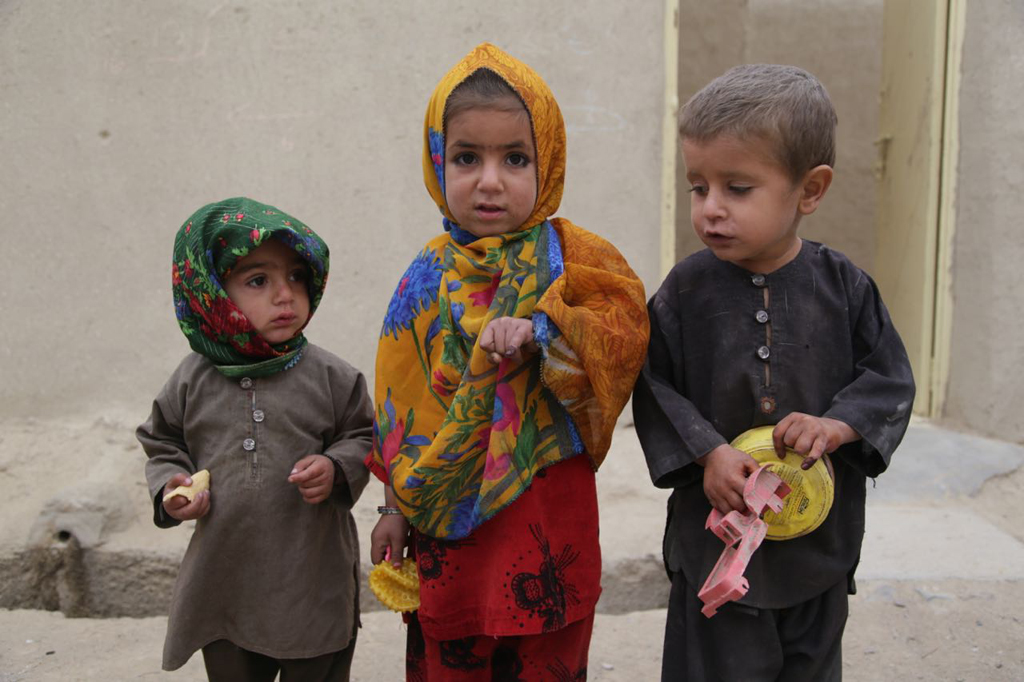
Each afternoon of a polio campaign in Kandahar, after the day’s door-to-door rounds have been completed, the vaccination teams congregate at health facilities. Most go right inside to drink tea, refrigerate their remaining stocks of vaccine and brainstorm operations for the next day. But a few, those who knocked on the doors of homes only to be abruptly shooed away, stop to speak with two profoundly bearded, energetic middle-aged men.
These men, Shah Mahmood, 56, and Abdul Rashid, 48, sit on their motorbikes consulting maps in animated conversation with the health workers about local families who refused to vaccinate their children against polio.
Both men are mullahs – respected religious leaders – and lately their motorbikes have facilitated a novel program to use religious elders to sway the most skeptical and conservative parents who believe vaccinations for children aren’t halal.
Mullah Mahmood and Rashid are independent volunteers who believe Muslims have an obligation to prevent the spread of polio. Their efforts are now being expanded, with a further 10 Mullahs being engaged in Nangarhar, in the country’s east.
In their role as freelance advocates these so-called “mobile mullahs” go a step beyond the conventional approach to health education. For the most part religious refusals are rare. Still, they occur frequently enough that during campaigns the mullahs remain on standby to intervene. During a typical campaign day, the mullahs can clock anywhere between several kilometers of city driving to more than 100 kilometres of rough rural roads.
“Polio campaigns have been going on so long it was easy to overlook the importance of vaccinating children,” said Mullah Rashid. “I’m doing this because ending polio is an obligation and I want to help my community.”
Their effort takes Islamic doctrine about vaccines out of the mosques and directly to homes, madrassas, and temporary nomadic settlements. At the end of its first year, their efforts have achieved significant results, convincing up to 80% of the families who persistently refuse to vaccinate their children against polio to agree to vaccination.
In Afghanistan, religious leaders have often been called upon to support polio vaccination campaigns and other children’s health initiatives. But until lately their support has been limited to gentle endorsements via mosque loudspeakers during the call to prayer. The Mullahs take their message directly to poor rural communities where modern health practices provoke deep anxieties.
Along with Pakistan and Nigeria, Afghanistan is one of the world’s three remaining polio endemic countries. In 2017, to date, the country hosts 6 of the 9 cases recorded globally.
“So far I think our work is very important. Parents may be aware of the risk of polio but still be scared of accepting the vaccinations for their children,” said Mullah Mahmood. “When we arrive at their homes and speak with them it establishes that vaccination is something that is supported by Islam and often this is enough to reassure them and make polio drops less threatening.”



